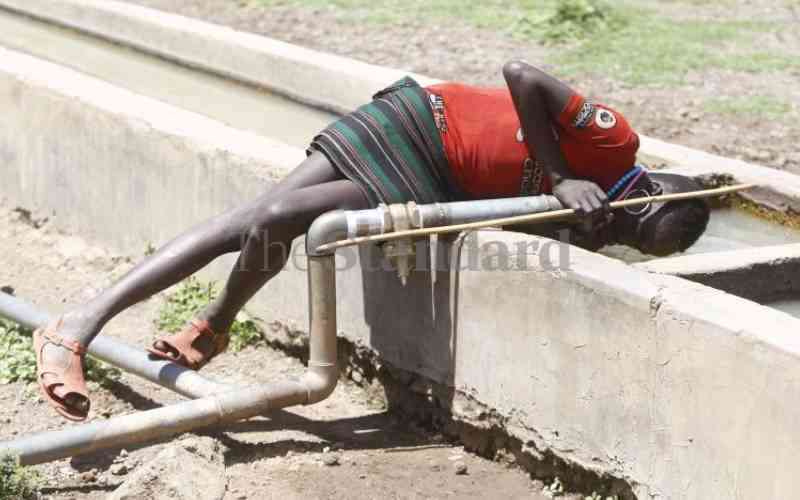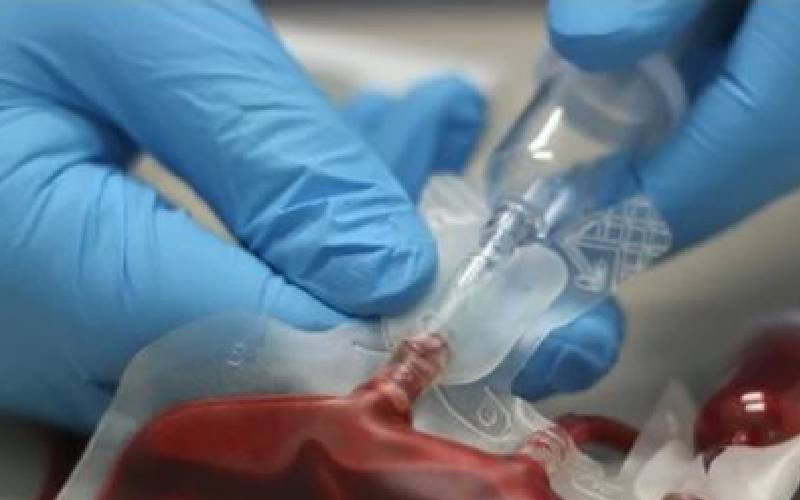
Water is essential for life. However, when its purity is compromised, what should be a source of vitality transforms into a wellspring of agony and despair.
Contaminated water can pose serious risks to human health and the environment. Studies have linked impure water with an array of diseases, including thyroid, ovarian, bladder, and kidney cancers, as well as cholera, diarrhea, dysentery, hepatitis A, typhoid, polio, and many others.
According to the Kenya Survey 2023 by the Kenya Bureau of Statistics (KNBS), for instance, there were 4 million cases of diarrhea reported by various hospitals in the country in 2022. KNBS data show that the cases of diarrhea have been increasing each year, with water being the likely culprit.
The report also indicates that typhoid fever, dysentery, and hepatitis were among the top 30 diseases that prompted millions of Kenyans to seek medical treatment at various health facilities in 2022.
This necessitates vigilant monitoring of water sources to ensure that the water we consume is safe and of high quality. Water testing provides valuable insights into the physical, chemical, or bacteriological composition of water sources, enabling us to identify and address any water quality issues effectively.
The integrity of water, essential for human consumption and ecological equilibrium, hinges upon meticulous oversight to ensure its quality and safety. This necessitates a multifaceted approach encompassing robust regulatory frameworks, advanced testing methodologies, and proactive intervention strategies.
Contaminated water, harboring an array of physical, chemical, and biological impurities, poses grave threats to human health and environmental well-being. Physical contaminants, ranging from suspended solids to sediments and debris, not only compromise water clarity but also disrupt delicate aquatic ecosystems. Chemical contaminants, comprising heavy metals, industrial chemicals, and pesticide residues, exert insidious effects due to their toxic composition. Meanwhile, biological contaminants, including pathogens like E. coli and viruses, propagate waterborne illnesses, precipitating a myriad of health crises.
The origins of these pollutants are multifaceted, emanating from both natural phenomena and anthropogenic activities. While mineral-rich soils and underground aquifers contribute to naturally occurring contaminants, human interventions such as industrial discharges and agricultural runoff exacerbate water quality degradation. The cumulative impact of these pollutants underscores the urgency of rigorous monitoring and proactive mitigation measures.
- Amid climate change, mosquitoes migrate; will malaria follow?
- Kenyan scientist elected as vice chair of global Climate panel
- Health adversely hit by climate change, experts say
- US researchers push front lines of mosquito control as planet warms
Keep Reading
Water testing emerges as a linchpin in the quest for safeguarding water quality and public health. By furnishing invaluable insights into the physical, chemical, and bacteriological composition of water sources, testing protocols empower stakeholders to identify and address quality issues effectively. Moreover, the comprehensive nature of water testing enables the discernment of nuanced variations and emerging threats, facilitating preemptive interventions to forestall potential crises.
The significance of water testing extends beyond immediate health concerns to encompass broader imperatives of environmental protection and sustainable resource management.
As the cornerstone of a resilient public health infrastructure, water testing empowers communities to safeguard their most precious resource against a litany of threats. Moreover, in the context of evolving regulatory landscapes and emerging contaminants, the agility and adaptability of testing protocols are indispensable assets in ensuring the efficacy and relevance of water quality standards.
In Kenya, a nation endowed with abundant water resources yet grappling with pervasive challenges of water scarcity and pollution, the imperative for robust water testing protocols is crucial. The Water Act of 2016, provides a comprehensive regulatory framework for overseeing water quality standards and compliance. Entities such as the Kenya Bureau of Standards (KEBS) and the Water Resources Authority (WRA) play pivotal roles in enforcing regulatory mandates and ensuring adherence to established standards.
In the private sector, entities such as Davis and Shirtliff Lab exemplify the indispensable role of corporate stewardship in advancing water quality objectives. Equipped with state-of-the-art laboratories and qualified personnel, Davis and Shirtliff Lab epitomise excellence in water testing, adhering to rigorous international quality standards. Through strategic partnerships, we exemplify the transformative potential of public-private collaborations in advancing shared water quality objectives.
As custodians of our planet’s most precious resource, we are duty-bound to uphold the sanctity of water and ensure its equitable access to all.
 The Standard Group Plc is a multi-media organization with investments in media platforms spanning newspaper print
operations, television, radio broadcasting, digital and online services. The Standard Group is recognized as a
leading multi-media house in Kenya with a key influence in matters of national and international interest.
The Standard Group Plc is a multi-media organization with investments in media platforms spanning newspaper print
operations, television, radio broadcasting, digital and online services. The Standard Group is recognized as a
leading multi-media house in Kenya with a key influence in matters of national and international interest.











